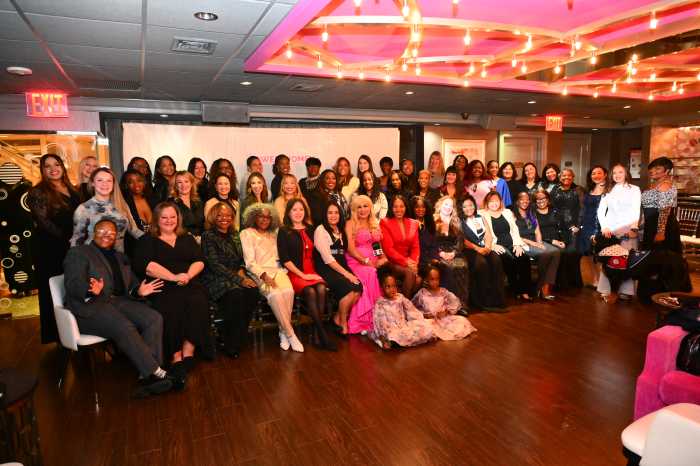Step through the front door of one of the historic Hunterfly Road Houses in Brooklyn and you are transported back in time to the parlor of a free Black New Yorker in the Civil War era. Step over the threshold of another house and you’ll find yoursel
The Weeksville Heritage Center, which makes New York City's African American history come alive all year long, invites you to discover how black New Yorkers really lived in the 19th and early 20th centuries. The center is opening its newly-restored, National Historic Register houses In February for special tours, storytelling sessions and children's craft workshops to commemorate African American History Month and to continue the celebration of its own 35th anniversary year.
Many of the programs are scheduled for Saturdays so that the entire family can participate. Others take place during schools' winter break, providing parents with fun programs for their at-home children.
Weeksville was a 19th century African-American Brooklyn community named after freed African-American James Weeks, who acquired property in the early 1800s. By the 1860s, Weeksville was a thriving, self-sufficient community with black-owned and run business, schools, churches, an orphanage and other institutions.
The community was also a safe haven for blacks who fled lower Manhattan after the deadly Civil War Draft Riots. Almost 500 families headed by carpenters, teachers, tailors, seamstresses and other self-reliant citizens lived in Weeksville by the 1900s.
The Hunterfly Road Houses are Weeksville's only surviving, intact residential structures. These cultural gems are located in what is now Central Brooklyn, almost hiding in plain sight in a verdant, park-like setting amidst looming apartment buildings.
Weeksville Heritage Center's tours of the historic Hunterfly Road Houses provide fascinating, intimate views of Black New York life in three different historical eras. Tours will be offered throughout February. In addition to tours, the Center is hosting hands-on children's workshops at the historic Weeksville site. Children ages 4-7 will learn 19th century techniques to create their own fun diversions-photograms (early photographs) and thaumatropes (“turning marvel” movies).
Finally, Weeksville Heritage Center is partnering with the Wyckoff Farmhouse Museum to host African Lives In Old Brooklyn-From Wyckoff To Weeksville, an afternoon of presentations and demonstrations highlighting the daily lives of African Americans in past times.
For information, call 718-623-0600 or visit www.weeksvillesociety.org.
Special Events
– February 18, 11 a.m. to 3 p.m.: Weeksville Open Saturdays. Discover how Black people really lived in the 19th century as the historic Hunterfly Road houses are opened for special tours all month long. Admission: $4
– february 21 and 24 at 1:30 p.m.: Enjoy a special family tour of an original Weeksville house and storytelling. Admission: $4
- February 22 at 1 & 3 p.m.: Make A Photogram. Picture this: Youngsters ages 4-7 learning how to make photograms (photo images created using 19th century technology) in a hands-on creative workshop. Reservations required; space is limited. Fee: $4 per child.
– February 23 at 1 & 3 p.m.: Make A Thaumatrope: Another hands-on workshop for youngsters ages 4-7. They'll have fun creating their own “turning marvel” movies. Reservations are required. Fee: $4.
All above events are at the Historic Hunterfly Road Houses at 1698 Bergen Street in Brooklyn.
On February 25, come to the Wyckoff Farmhouse Museum at 5816 Clarendon Road in Brooklyn, for African Lives In Old Brooklyn-From Wyckoff To Weeksville. Travel between the Wyckoff Farm Museum (WFM) and the Weeksville historical site to explore the lives of African Americans on Brooklyn's colonial farms. This event is free.
At 12 p.m. there is a presentation on “Slave Bill of Sales”; from 12-4 p.m., there are child-friendly crafts demonstrations. At 1 pm enjoy a panel discussion: “Presenting African American History” with Dr. Firth Fabend, Professor Graham Hodges of Colgate University and Professor Craig S. Wilder or Dartmouth College.
At 2 p.m. watch quilt artist Diane Holland demonstrate the craft. At 2:30 p.m. board a free bus to tour the historic Hunterfly Road Houses.


































